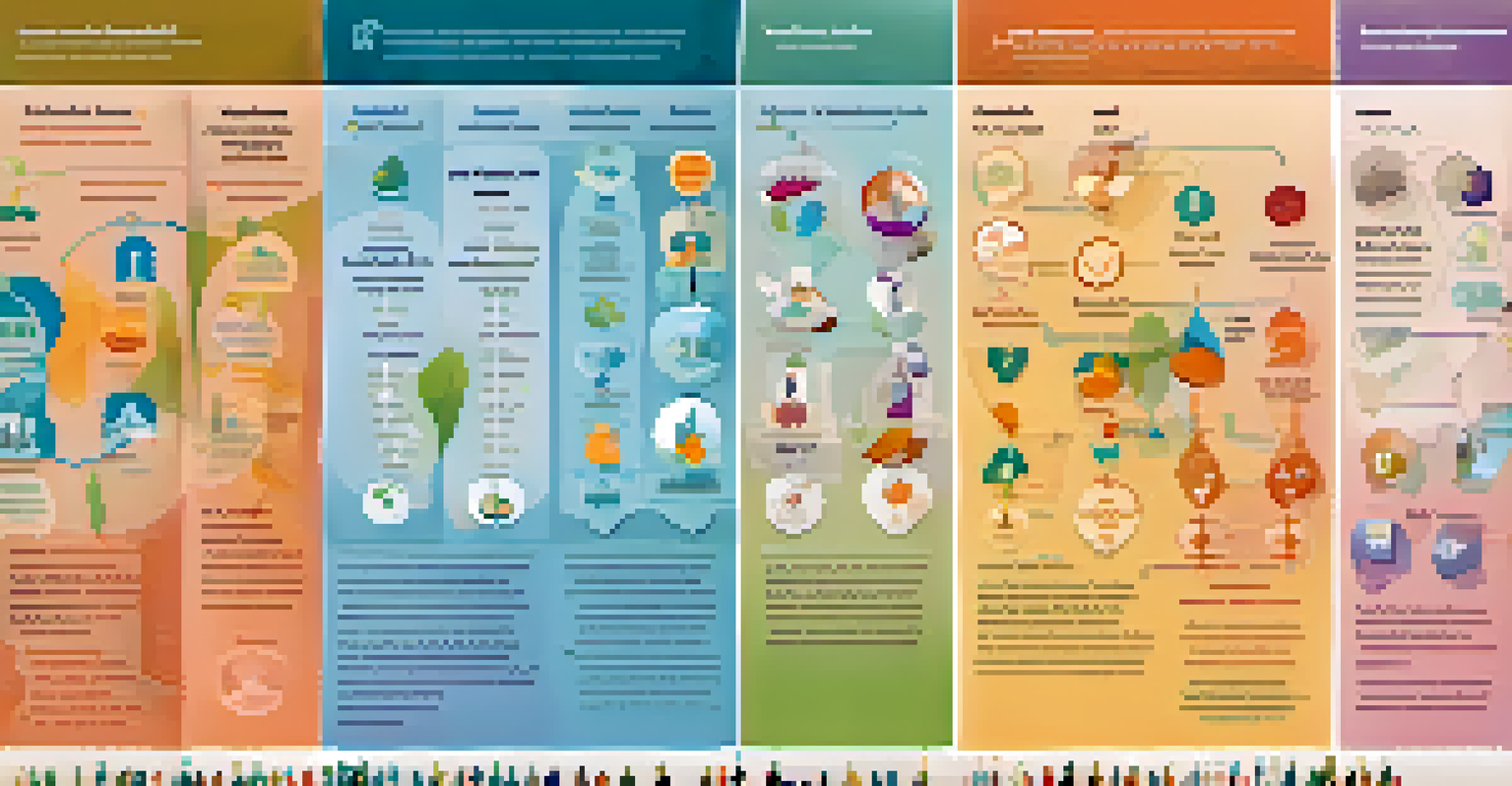How Family Health History Affects Women's Health Issues

What is Family Health History and Why It Matters
Family health history refers to the record of health issues in your family, including genetic diseases, chronic conditions, and mental health issues. This information is crucial because it helps identify patterns that could indicate risks for certain health problems. For women, understanding their family history can empower them to take proactive steps in managing their health.
Genetics loads the gun, but lifestyle pulls the trigger.
For instance, if breast cancer runs in your family, you may consider more regular screenings or preventive measures. Similarly, knowing about conditions like diabetes or heart disease can motivate lifestyle changes or medical consultations. It's like having a roadmap that guides you toward better health choices.
Moreover, discussing family health history can strengthen communication among family members, fostering a supportive environment. This dialogue not only raises awareness but may also encourage relatives to share their health journeys, leading to collective well-being.
Genetic Factors in Women's Health Issues
Genetic predispositions play a significant role in women's health, especially concerning conditions like breast and ovarian cancer. Certain genes, such as BRCA1 and BRCA2, are linked to a higher risk of these cancers, and knowing your family history can help determine if genetic testing is necessary. This knowledge can be life-changing, providing options for prevention or early detection.

For example, if several women in your family have had breast cancer at a young age, discussing this with a healthcare provider can lead to genetic counseling. This proactive approach can equip you with information on your risks and available preventive strategies. It's akin to having a safety net that can catch potential health issues before they escalate.
Family Health History Guides Choices
Understanding family health history empowers women to make informed decisions about screenings and lifestyle changes.
Additionally, genetic factors don't just stop at cancer; they can influence conditions like autoimmune diseases and cardiovascular issues. Understanding these connections can help women make informed health decisions and seek appropriate screenings tailored to their familial risks.
The Role of Lifestyle Choices in Women's Health
While genetics play a crucial role, lifestyle choices can significantly influence women’s health outcomes, especially when paired with family health history. Factors like diet, exercise, and stress management can mitigate risks associated with hereditary conditions. For instance, women with a family history of heart disease can adopt heart-healthy diets and regular physical activity to improve their outcomes.
Your family health history is like a roadmap; it can guide you to make better health choices.
Think of it this way: having a family history of a health condition is like having a warning sign. It might not guarantee that you’ll face the same issues, but it does signal the need for lifestyle adjustments. Making healthier choices can serve as a buffer, reducing the likelihood of developing conditions that run in the family.
Moreover, engaging in supportive communities, whether through family or local groups, can enhance motivation. Sharing experiences and tips on healthy living can create a ripple effect, encouraging everyone to prioritize their health together.
Impact of Mental Health in Family History
Mental health is another critical aspect where family health history plays a vital role. Conditions such as anxiety, depression, and bipolar disorder can have hereditary components, making it essential for women to understand their family's mental health landscape. Recognizing these patterns can help identify risk factors and encourage early intervention.
For instance, if a mother or sister has struggled with mental health issues, it may be beneficial for other female family members to be aware of their potential vulnerabilities. This awareness can lead to proactive measures, such as seeking counseling or practicing stress-reduction techniques. It's about creating a framework where women feel empowered to prioritize their mental well-being.
Genetics and Women's Health Risks
Genetic predispositions, like those for breast cancer, highlight the importance of awareness and proactive health measures.
Additionally, discussing mental health openly within families can reduce stigma and promote understanding. By fostering an environment where mental health is treated with the same importance as physical health, families can support each other through challenges.
Breast Cancer Screening and Family History
Breast cancer screening is a crucial area where family health history plays a significant role. Women with a family history of breast cancer are often advised to start screenings earlier or undergo more frequent tests. This proactive approach can help detect potential issues before they progress, increasing the chances of successful treatment.
For example, women with first-degree relatives who have had breast cancer may be recommended to start mammograms at a younger age than the general population. This tailored approach underscores the importance of individualized health care based on family history. It's like tailoring a suit to fit perfectly rather than relying on a one-size-fits-all approach.
Moreover, advancements in technology allow for more personalized screening options, such as genetic testing. Women can work with their healthcare providers to develop a screening plan that considers both their family history and personal health.
Polycystic Ovary Syndrome (PCOS) and Family Genetics
Polycystic Ovary Syndrome (PCOS) is another condition influenced by family health history, particularly concerning women's reproductive health. If a woman has relatives with PCOS, she may be at a higher risk of developing the condition herself. Early recognition and intervention can make a significant difference in managing symptoms and improving quality of life.
Understanding PCOS can be crucial for women who are trying to conceive, as the condition can lead to fertility issues. Family history can guide discussions with healthcare providers about potential risks and management strategies. Think of it as having a family handbook that reveals important health insights.
Open Dialogue Enhances Health Awareness
Encouraging open discussions about family health can lead to better understanding and proactive management of health risks.
Additionally, lifestyle adjustments such as maintaining a healthy weight and regular exercise can help mitigate some symptoms associated with PCOS. By being informed about family history, women can take proactive steps to manage their health more effectively.
The Importance of Open Family Conversations
Open discussions about family health history can significantly enhance women’s health outcomes. Encouraging family members to share their health experiences can foster a culture of awareness and proactivity. This dialogue can be especially impactful in identifying patterns that may not be immediately apparent.
For example, a casual family gathering can be transformed into a valuable health discussion, where relatives can share their experiences with conditions like diabetes, heart disease, or mental health issues. This exchange of information can empower women to seek necessary screenings or lifestyle changes based on what they learn. It's like turning family gatherings into health workshops.

Moreover, creating a family health tree can visually illustrate health patterns, making it easier for everyone to understand their potential risks. This simple act of sharing information can lead to more informed health decisions and a greater sense of community support.